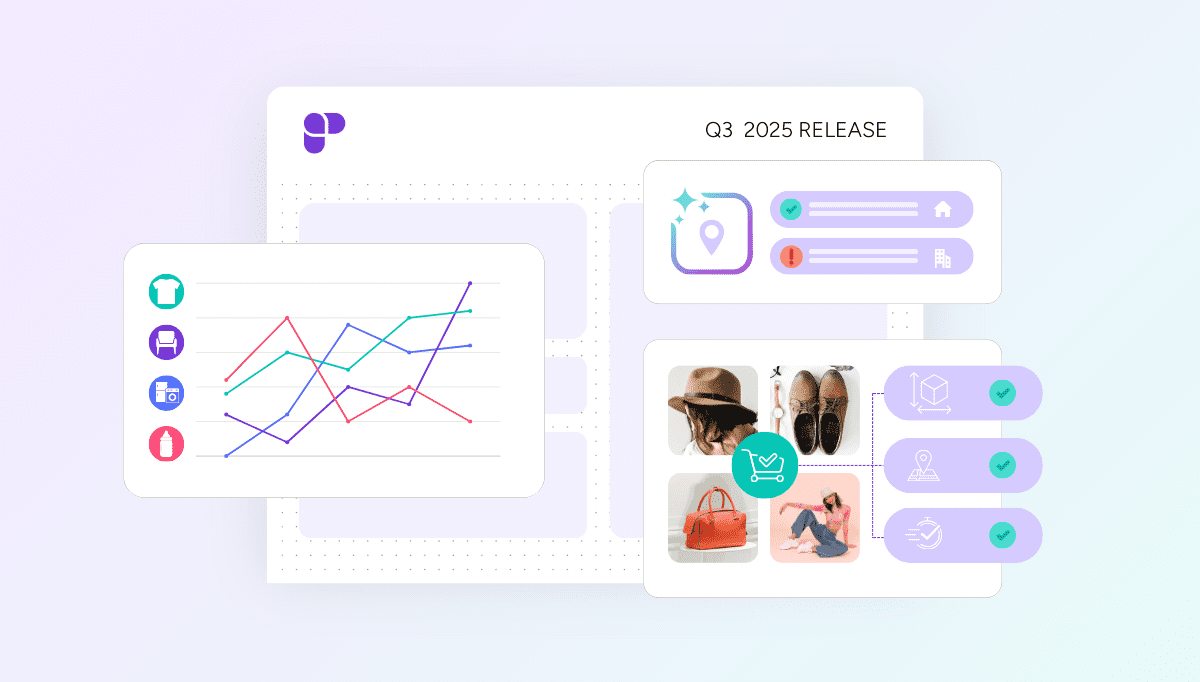At Rithum, AI is more than a buzzword; it’s the engine we use to power 2.4B daily transactions for 40K+ brands across hundreds of marketplaces. With the rising complexity of ecommerce and shifting consumer shopping patterns, AI is key to enabling speed, accuracy, scalability, and profitable growth for our clients.
But impactful AI doesn’t happen by accident. It requires more than clever models. It demands leadership with deep domain knowledge, strategic execution, and a clear focus on value creation. At Rithum, we have a full team of people who are doing just that: led by Ali Irturk, PhD, Rithum’s Chief Technology Officer, and Sebastian Spiegler, PhD, Head of AI.
Ali brings two decades of applied AI leadership to his role, with a PhD in Computer Science and a track record of scaling intelligent automation, computer vision, and data-driven platforms at enterprise scale. He’s built and led technology teams through rapid growth, always with a focus on translating AI from theory into tools that drive performance and profitability.
Seb, who holds a PhD in Machine Learning and Natural Language Processing, blends deep research fluency with startup agility. His background spans everything from genomics and large-scale language models to founding a Generative AI company focused on product discovery—now part of Rithum. He’s also long been an investor and advisor in the AI ecosystem, giving him a wide-angle view of where the technology is going—and how to make it practical today.
Together, they bring a real-world ready, research-informed, results-driven approach to scaling AI in commerce and building Rithum’s AI-powered technology. Here’s what they had to say about some of the ways AI is changing ecommerce and how it’s evolving alongside the industry.
Q: Seb, what’s a common misconception about AI in commerce?
One big misconception is that AI is plug-and-play or that it fully automates entire workflows. That’s rarely the case. Effective AI deployment relies on domain expertise, strong data infrastructure, and human oversight. Without that foundation, AI often fails to deliver meaningful results. Impactful AI demands more than hype—it demands vision, disciplined execution, and trust.
Q: Ali, how does your team approach AI differently at Rithum?
We approach AI as a systems problem, not a feature set. That means embedding AI directly into commerce workflows—whether it’s product discovery, catalog optimization, or advertising performance. My career has been about scaling AI to solve operational problems in high-stakes environments, and that same mindset drives our strategy here. Our goal isn’t to build demos. It’s to build durable, measurable outcomes that evolve with our customers’ needs.
That’s why we’ve built infrastructure like the AI Magic Mapper, which accelerates product onboarding with AI-driven categorization and field mapping, and our AI Data Core —a scalable, multi-modal Knowledge Base that powers smarter product enrichment and attribute validation in the backend of our solutions. These aren’t standalone features, but systemic enablers. They support human-in-the-loop workflows at scale, improve data quality, and make AI outputs useful in the real world. We approach AI with a mindset of operationalizing intelligence, not just showcasing it.
Q: Seb, you’ve been in AI for a long time, before it was on most people’s radar. What are you most excited about across the AI universe—inside or outside of commerce?
I’m particularly interested in the convergence of multi-modal AI and large-scale knowledge systems. When you can make sense of structured and unstructured data together, that opens up real possibilities, especially in the dynamic ecommerce environment. But broadly speaking, what excites me most is AI’s potential to augment human creativity and decision-making. That’s where the value is.
Q: Ali, Rithum has an AI Center of Excellence. What’s its most important guiding principle?
Bridging research and operations. AI has the most impact in the loop, not in isolation. It’s about aligning with business goals, embedding AI expertise into cross-functional teams, and creating feedback loops that allow for fast iteration. At Rithum, our AI Center of Excellence is built on the philosophy of practical innovation, deeply embedded in execution.
Q: Seb, headlines about AI can feel overwhelming. What should non-experts keep in mind?
Most headlines exaggerate. Either they oversell AI’s capabilities or gloss over the implementation realities. The truth is: AI requires quality data, defined goals, and human judgment. Behind every success story is a system of people, processes, and platforms working in harmony. So a bit of scepticism, and a lot of curiosity, is always a good starting point.
Q: Many companies talk about using AI. What does Rithum actually do differently?
Ali: A lot of companies are either experimenting with AI at the edges or using third-party tools that aren’t built for commerce complexity. What sets Rithum apart is that we own the full data and delivery stack, and we’ve embedded AI directly into it. That gives us the control and visibility to drive performance where it matters: onboarding speed, listing accuracy, inventory health, advertising ROI.
Sebastian: And we design with scale and accountability from the start. Our AI systems are not feature experiments. They’re engineered as part of platform infrastructure. That’s why tools like our AI Magic Mapper and the AI Data Core at the center of our solutions aren’t just technically interesting: they’re business-critical. We prioritize human-in-the-loop design, ethical guardrails, and architecture that can grow with our clients. That’s the real differentiator.
_____________________________________
This blog is the first in a series where we’ll share more about how we approach the principles and practices of AI at Rithum, to ensure it scales responsibly and delivers real business impact. In the coming months, we’ll explore topics like scalable AI architecture, responsible AI practices, practical use cases for ecommerce, and how we continue to grow the AI and ML talent that powers our platform. Our goal is to help our commerce leaders understand not just what we’re building—but how we’re building it to create lasting value for the global commerce ecosystem. Follow us on LinkedIn to never miss a post.




